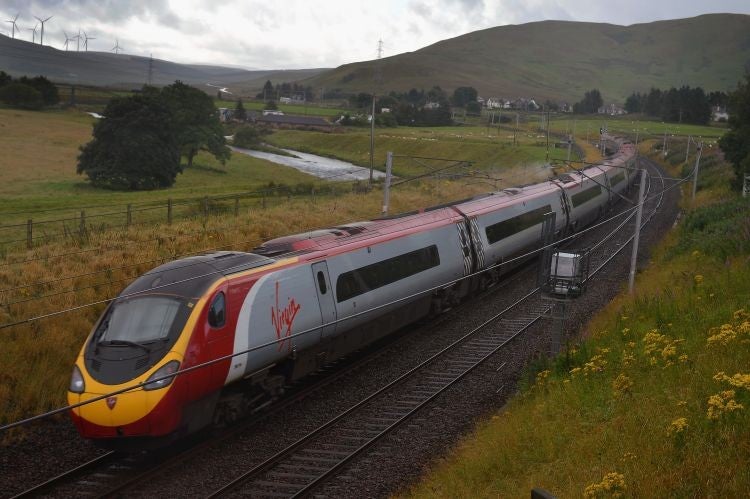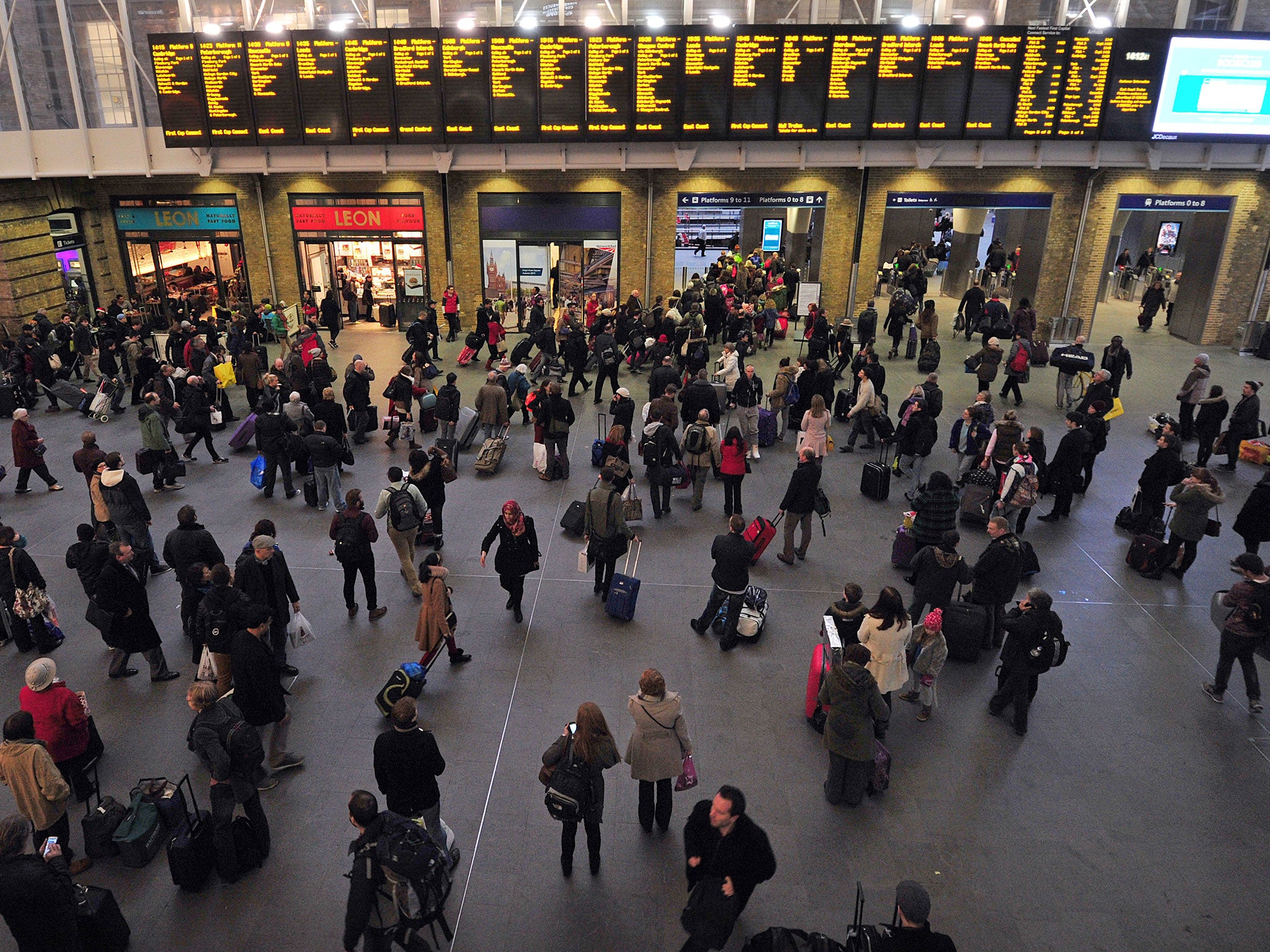Give northern England, Wales and Scotland a larger share of rail funding, MPs say
Members of the Transport Select Committee have called on the Department for Transport to deliver a fairer deal as part of its record £38bn rail investment

Your support helps us to tell the story
From reproductive rights to climate change to Big Tech, The Independent is on the ground when the story is developing. Whether it's investigating the financials of Elon Musk's pro-Trump PAC or producing our latest documentary, 'The A Word', which shines a light on the American women fighting for reproductive rights, we know how important it is to parse out the facts from the messaging.
At such a critical moment in US history, we need reporters on the ground. Your donation allows us to keep sending journalists to speak to both sides of the story.
The Independent is trusted by Americans across the entire political spectrum. And unlike many other quality news outlets, we choose not to lock Americans out of our reporting and analysis with paywalls. We believe quality journalism should be available to everyone, paid for by those who can afford it.
Your support makes all the difference.The north of England, Scotland and Wales should be given a larger share of rail funding, according to a report by an influential group of MPs.
Members of the Transport Select Committee have called on the Department for Transport to deliver a fairer deal as part of its record £38bn rail investment.
Old trains running between Liverpool and Manchester, the continued use of outdated Pacer trains on routes in the north of England, and a spending bias favouring London and the south of England at the expense of the rest of the country are among the examples highlighted by the report.
The report also warned that “key” rail project decisions outside of the capital, such as the electrification of North and North West of England, were made by Government without the rail operator Network Rail having a “clear estimate of what projects will cost.”
MPs on the committee welcomed the record level of funding for the railway network which will run until 2019, but said that “greater transparency” was needed and demanded that the criteria used to allocate spending should be published.

Ministers were urged to take responsibility for aged rolling stock and the shortage of carriages which have led to massive overcrowding, amid concerns that the Department for Transports had ordered modern new trains for services in London, while passengers in the rest of the country had to endure refurbished older stock, such refurbished 1980s Pacer trains which are notoriously unpopular with passengers.
Louise Ellman, the Labour MP who chairs the committee, said Transport Secretary Patrick McLoughlin had refused to say when the “outdated and unpopular” Pacer trains would be removed from the network, adding that they should go by 2020 at the latest.
She said: “With over 1.5 billion journeys made last year, millions of people rely on a train service to get to work or see family and friends. We welcome the record spending planned for the 'classic' rail network, but Treasury statistics demonstrate that for too long this spending has been focused on London.”
Mick Cash, leader of the Rail, Maritime and Transport union, said that “twenty years of fragmentation, mismanagement and private profiteering” had left the industry with in “the ludicrous position” of having to shift rolling stock around the country, while struggling with a lack of trains for newly electrified lines.
He said: “The state of our rail fleet and infrastructure is a daily insult to passengers paying the highest fares in Europe to travel on rammed out, unreliable services.”
The Select Committee report also warned Network Rail that the Christmas “chaos” suffered by tens of thousands passengers travelling in and out of London because of over-running engineering works was “unacceptable”.
“The chaos faced by passengers over Christmas at King’s Cross and Paddington, and the continuing disruption at London Bridge, are unacceptable. They are also a worrying sign for the capacity of Network Rail to manage multiple, complex engineering projects simultaneously.”
According to the report MPs are concerned that the Christmas disruption may be a sign of things to come on other projects - such as electrification in the North West and the Great Western Main Line – if the rail body does not learn lessons and improve its contingency plans and procedures for communicating with passengers.
A Department for Transport spokesperson said: “We are investing record amounts in building a world-class railway as part of our long term economic plan and we have ambitious plans to improve rail services in the north. This includes improved east-west journey times through HS3, the replacement of Pacer trains and a £1 billion investment programme in the region’s railways.
“Together they will improve services for passengers and help close the economic gap between north and south. We have made it clear to Network Rail that we expect the company to deliver the government’s investment programme on-time and on-budget.”
Join our commenting forum
Join thought-provoking conversations, follow other Independent readers and see their replies
Comments